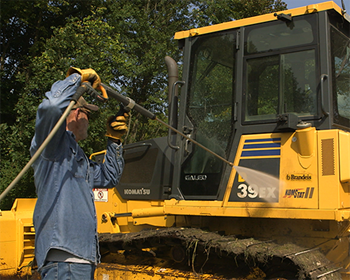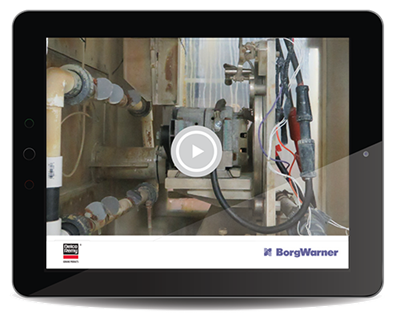
If you manage a fleet of off-highway equipment, you know they get dirty—sometimes really dirty. That’s what they’re made for—to endure the rough elements off the main roads. Cleaning off-highway equipment is a regular part of maintaining it. But did you know that if you are pressure washing, steam cleaning or using chemical degreasers, you could end up with a problem far worse than dust and dirt if you don’t clean it properly? That problem is corrosion of the starter or alternator.
While both the Delco Remy branded starters and alternators are laboratory tested to withstand salt spray, muddy water, dust, high pressure water and chemical exposure, it’s important to avoid contamination during cleaning. Direct exposure of the starter or alternator to high pressure water, steam or chemical cleaners will shorten the service life of these electrical products by increasing circuit resistance and heat.
Much too often, we’ve seen this happen when equipment is cleaned and immediately put away in storage. Days, weeks or months later, when it is taken out again, the starter or alternator is damaged or fails completely. Sometimes parts are even bonded together—metal to metal. All the result of water damage and corrosion.
Next time you pressure wash your equipment, follow these simple steps.
- Avoid directly spraying the starter or alternator. If direct spray cannot be avoided, shield or cover the alternator/starter to avoid moisture intrusion and other contamination.
- After you’re done washing the vehicle, then start it. Let it run several minutes. This will help the components dry out.

Generally, we advise letting it run between 10 to 15 minutes. When deciding how long to run the engine so the components can air out, consider things like the size of the equipment, the RPM, the amount of airflow where you’re at, and even the air temperature.
Just taking a little extra preparation before cleaning and time on the back-end will help you avoid headaches—and unwanted repairs—when you’re ready to use your equipment again.
Watch our Tech Tip video to learn more about the impacts of improper equipment washing.